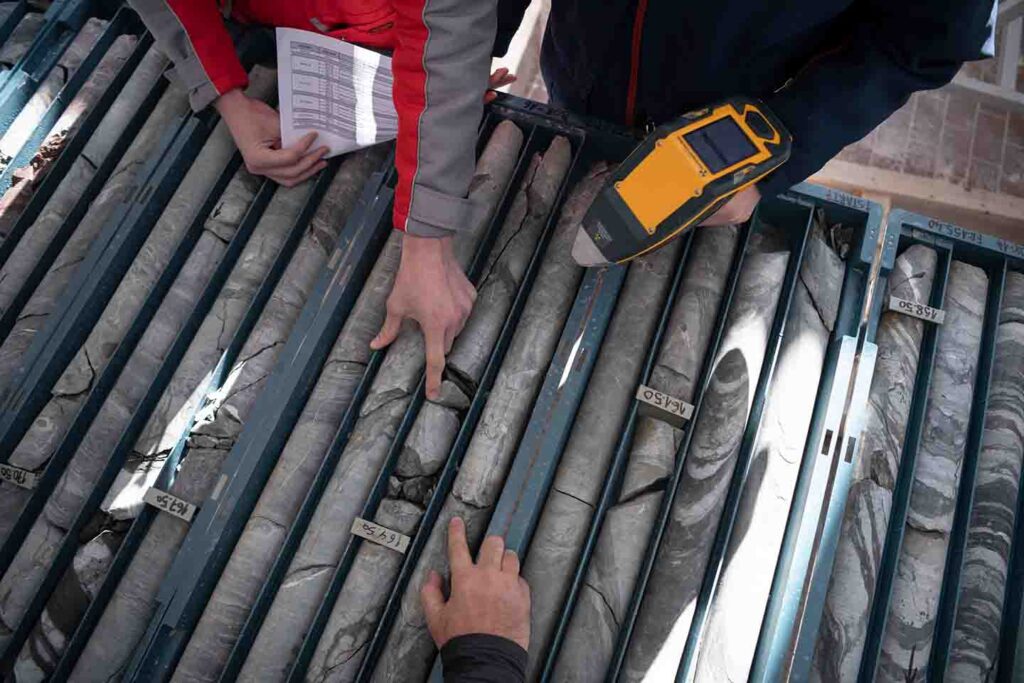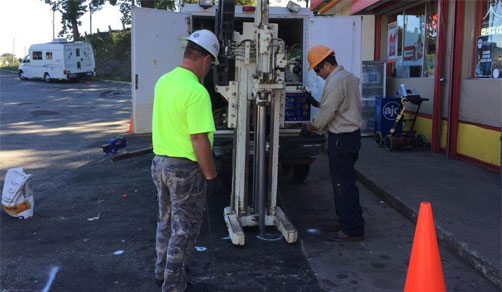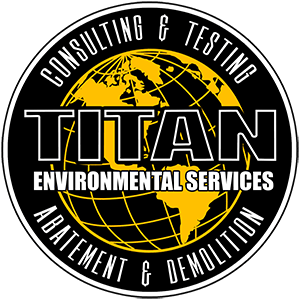ENVIRONMENTAL SITE ASSESSMENTS
PHASE 1 ESA - ENVIRONMENTAL SITE ASSESSMENT

Trust Titan to provide Phase 1 Environmental Site Assessments for industrial, commercial, multifamily in KC. The site assessment experts at Titan follow ASTM Standard E1527-21. We provide Phase 1 ESA services throughout the Kansas City area. Through database research, we can find environmental risk considerations. Phase 1 ESA protect you from environmental liability.
Titan’s highly qualified industry experts understand the risk involved. We understand the EPA’s All Appropriate Inquiries (AAI) Standard. We care about the success of your business and we’re here to help guide you through process.
RELIANCE LETTERS
A Phase 1 Environmental Assessment reliance letter is a legal document. It allows professional geologists to authorize others to use the report. As an extension of liability, these letters apply to Lenders and SBA. Thus, an additional cost usually applies. The Phase I ESA reliance letter is not a modification to the original assessment report. The reliance letter implies no warranty that existing site conditions are the same. The cost of a Phase 1 ESA reliance letter can range between $250 to $600.
HOW LONG DOES THE PHASE 1 ESA PROCESS TAKE?

A Phase 1 ESA typically takes about 12 to 14 business days to complete. This is the standard turnaround and strongly relies on the response rates of local government. Rush turnaround options are available for Phase 1 ESA reports. , However, it could take local agencies up to 10 to 12 business days to release the requested records. As a result, if a Phase 1 Environmental Site Assessment is expected in 5 business days, important documentation may be missing. Without these records, the Phase 1 report will have data gaps, resulting in an incomplete assessment.
To be Safe and get expert services, call Titan.
TITAN’S PHASE 1 ESA SERVICES INCLUDE:
PROPERTY HISTORY SEARCH:
- Chain of Title Information (upon request) / Planning Records and Building Permits
- Sanborn Fire Insurance Maps / City Directories
- Gas and Oil Survey Maps / Historical Aerial Photographs
- Topographical Maps / Historical Review of Adjoining Properties
SITE RECONNAISSANCE:
- Site Assessment / Detailed Photo Log
- ID Confirmation / Inventory of Petroleum
- Hazardous Materials ID
- Document Review / Interviews
- Review of Available Site Information
- Real Property Records
- Interview Local / State Regulatory Officials
- Interview Property Owners / Tenants
REGULATORY AGENCY FILE REVIEW:
- Federal Env. Agencies
- State Env. Agencies
- Local City Departments
HYDROGEOLOGY AND GEOLOGY:
- Geological Surroundings
- Soil Analysis
PHASE II ENVIRONMENTAL SITE ASSESSMENTS:

If a Recognizable Environmental Condition (REC) is found, Titan will recommend a Phase II ESA. Further review / testing will be needed if an issue exists. With proper assessment, the REC is identified / addressed. Accurate site data helps us develop a remedial action plan. Cost estimates are prepared for buyers, sellers and lenders. Each REC is assessed through a realistic perspective.
TITAN’S PHASE II ESA SERVICES INCLUDE (BUT ARE NOT LIMITED TO)
- Soil & Groundwater Sampling
- Soil Gas Surveys
- Geophysical Surveys
- Waste Analysis
- Industrial Wastewater Compliance
- Detection of Possible USTs and LUSTs
- Asbestos, Lead, and Universal Wastes (PCBs, Mercury, Tritium, CFCs, etc.) Surveys
- Mold and Indoor Air Quality Assessments
- Wastewater, Storm Water and Wetland Permitting
COMPREHENSIVE ENVIRONMENTAL RESPONSE
COMPENSATION LIABILITY ACT (CERCLA)

Titan helps property owners navigate the requirements of CERCLA. Known as Superfund or the Innocent landowner defense fund. A Federal “Superfund” pays to cleanse uncontrolled or abandoned sites. It helps landowners with accidental pollutant / contaminant spills. EPA seeks out those responsible / assures cooperation in site cleanup.
EPA SUPERFUND SITES
EPA performs site clean-up when the offender is unknown or has fled. The EPA obtains cleanup orders, consent decrees and negotiates settlements. EPA recovers costs from persons / companies responsible. EPA is authorized to implement the Act in 50 states / U.S. territories. Each State manages their Superfund sites. They assign a Site ID / Develop Response Actions. They are also responsible for employing 3rd party Site Monitoring
SUPERFUND AMENDMENTS & REAUTHORIZATION ACT (SARA)
SARA allows CERCLA to continue cleanup activities nationwide. It added site-specific changes and other technical requirements. It also expanded enforcement authority.
EMERGENCY PLANNING & COMMUNITY RIGHT TO KNOW ACT (EPCRA)
SARA authorized EPCRA, which focused on community safety. It was designed to help communities protect public health and safety. It expanded protections for the environment against chemical hazards.
EPCRA requires each state to have a State Emergency Response Commission. The SERC is required to divide their states into Emergency Planning Districts. Each state names a Local Emergency Planning Committee (LEPC) for each district.
Each planning committee is composed of:
- Local Government Officials
- First Responders
- Health Officials
- Community Groups
- Media Reps
- Emergency Managers
